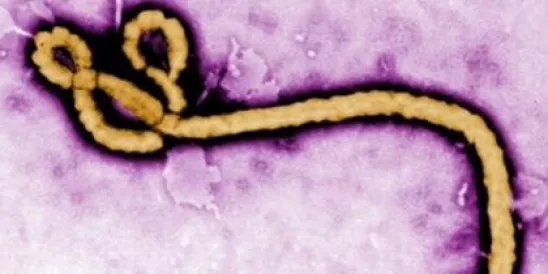The Obama Administration has mobilized a number of government agencies to respond to the Ebola crisis in West Africa and to prevent its spread into the U.S. At the frontline of the Administration’s response is the Pentagon, the Department of Health and Human Services, the Center for Disease Control, the U.S. Agency for International development and, more recently, the Department of Transportation.
Conspicuously missing, however, is the Department of Commerce, which traditionally is the link to the U.S. private sector.
This omission is significant because U.S. companies are likely to get materials to the stricken countries of Liberia, Sierra Leone and Guinea more quickly than the Pentagon. In the instances in which they operate locally, the companies provide a valuable source of information and delivery infrastructure.
For example, in mid-August, more than 20 leading medical companies shipped 40 tons of supplies and protective equipment to Liberia. The airlift was coordinated by the California-based NGO, Direct Relief, and facilitated by Fedex. Companies such as Pfizer, Teva, Merck, Kimberly-Clark and Mylan Laboratories contributed 2.3 million gloves, 65,000 masks and 185,000 tabs of antibiotics. As of September 20th, Direct Relief had coordinated 11 shipments of supplies.
Equally important is the Ebola Private Sector Mobilization Group (EPSMG) which is a network of more than 40 companies active in West Africa and, especially, Liberia, Guinea and Sierra Leone. Chaired by ArcelorMittal and including companies such as Chevron, Rio Tinto and BHP Billiton, the group seeks to provide a single access point for the private sector to help mobilize and coordinate a response. The group’s first principal is to “be part of the region’s long-term economic and social recovery and development.” EPSMG has met with Dr. Margaret Chan, Director General of the World Health Organization, and the U.S. ambassador to Liberia, Deborah Malac, and engaged with organizations such as the UN Ebola Task Force, the World Bank and various NGOs.
The in-country private sector plays other important roles. ArcelorMittal, which has a workforce of nearly 3000, provides health care for its workers and their families and uses its internal communications network to convey accurate and timely information about the epidemic. Firestone Rubber, which has been in Liberia since 1926, detected in first case of Ebola on March 30th, according to NPR. Since then, the company went into crisis mode, built its own treatment center and developed a comprehensive response that effectively stopped the transmission of the virus among more than 80,000 employees and family members who live on the sprawling plantation.
Local companies such as the National Oil Company of Liberia and the Sierra Leone Produce Marketing Company have also made contributions to combatting the virus.
The importance of the private sector’s role in responding to health emergencies cannot be underestimated. Companies such as Anglo-American, SABMiller and Ford Motor Company played critical roles in combatting the HIV/AIDS crisis in South Africa by making medicines and quality health care available to their employees and their families, and they continue to play this role.
The U.S. Chamber of Commerce and the Corporate Council on Africa are to be applauded for the role that they have played in helping to coordinate and publicize the U.S. private sector response to the Ebola crises.
The Obama Administration has effectively integrated the private sector into key development initiatives such as Power Africa and the New Alliance for Food Security and Nutrition, which is the private sector component of Feed the Future. It would do well to establish a similar mechanism as part of its Ebola response. Controlling the spread of Ebola and the development of viable health care systems in the three affected countries will require the sustained engagement of governments, NGOs, international organizations and agencies and the private sector. The sooner that all parties are able to coordinate their efforts the more likely this virus will be controlled.




 />i
/>i

